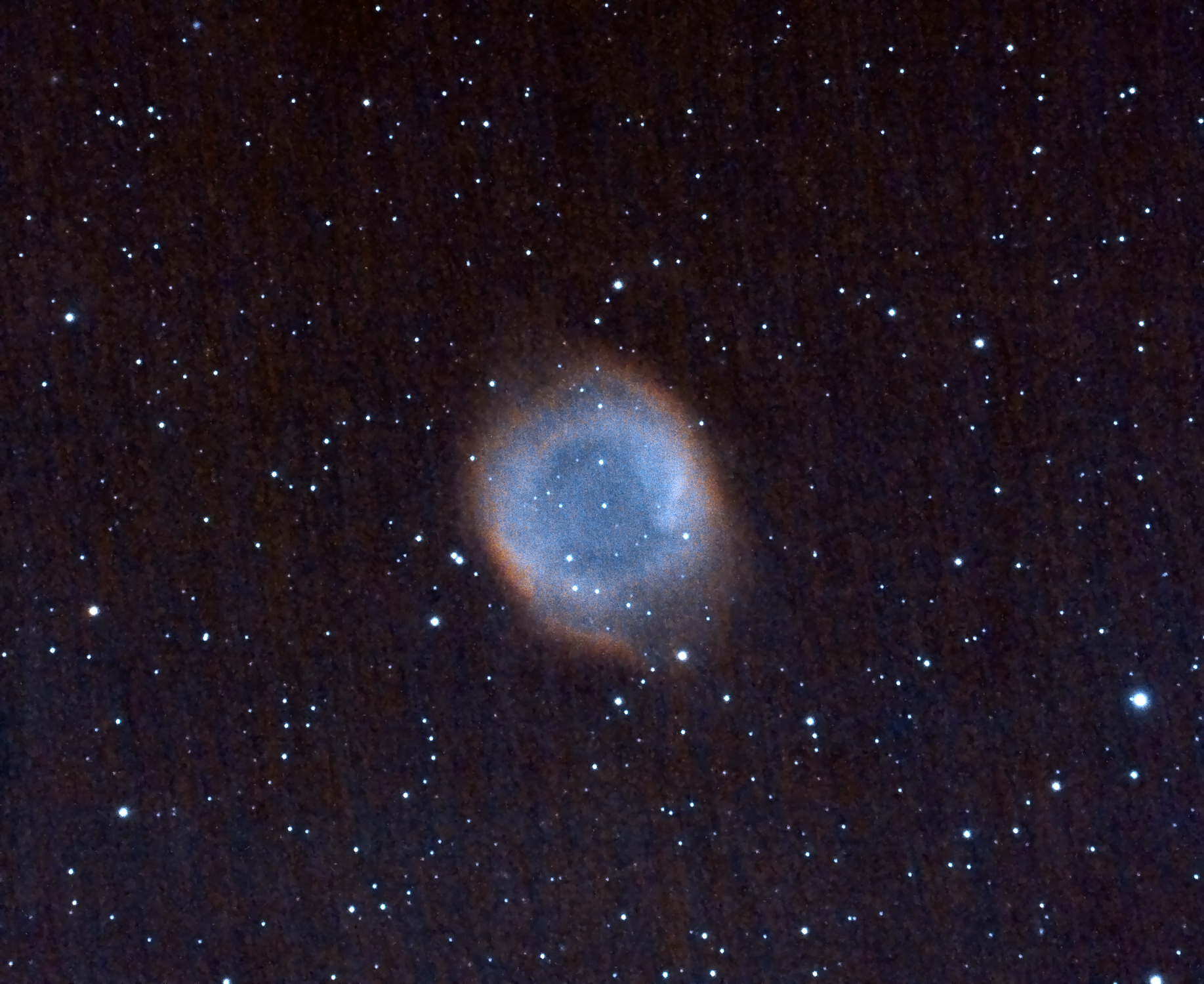NGC7293 - Helix Nebula

By Anton Winter

This is NGC7293 ‘Helix Nebula’, taken from my backyard (again) on the 11th October 2013. With a 44% illuminated moon high in the sky I wasn’t actually planning on shooting this nebula on that night, particularly as the moon was so high and bright in the sky. A quick look at Stellarium showed that the helix Nebula was to be right above me, with its photons having to travel through the least amount of Earth’s atmosphere I thought I’d give it a go anyway.
I wasn’t expecting too much from only a few hours of data capturing as this 7.6 magnitude nebula typically required a lot of data. A cursory five minute test exposure yielded just a faint smudge, so I continued.. 😉
This image is made up of the following sub-exposures:
- 16 x 1m
- 26 x 2m
- 6 x 5m
- 2 x 10m
Total Exposure Time: 118m
This image has very heavy cropping considering it only takes up a small part of the image sensor through the Orion ED80T CF. Further to that I needed to do a lot more dithering to avoid the streaky artefacts across the image. It didn’t help that I had no dark or flat calibration frames (I so wish I had a tec cooled CCD!).
- Imaging Camera: Canon 550D (unmodified)
- Imaging Scope: Orion ED80T CF
- Guide Scope: Orion 80mm
- Guide Camera: Orion Starshoot Autoguider
- Mount: HEQ5 GOTO
- Filter: Astronomik CLS Clip In filter
- Flattener" Orion Field Flattener
- Guiding: PHD
- Image capturing: Nebulosity3
- Stacking and pre-processing: PixInsight
- Minor curve adjustments: Aperture3